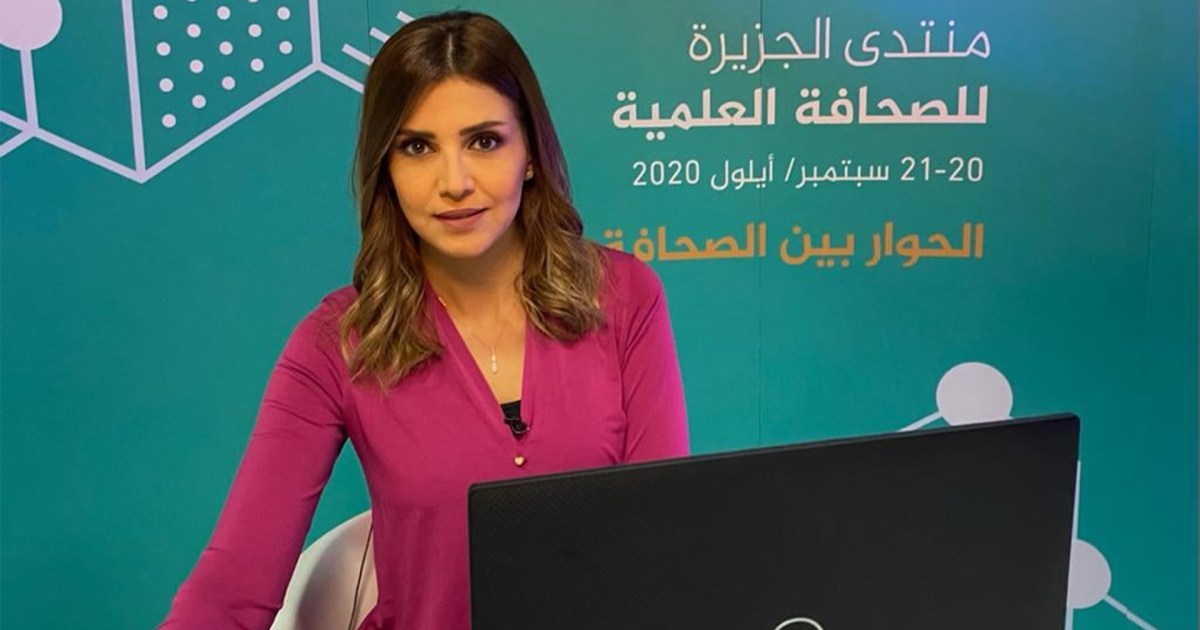Today, Monday, the activities of the Al Jazeera Forum for Scientific Journalism, which were held by the Al Jazeera Internet Media Institute, were concluded and lasted for two days.
The forum was attended by 1,500 participants from 40 countries, and its views reached 350,000 views on the Al Jazeera Media Institute platforms.
In parallel with the Al-Jazeera Forum for Scientific Journalism, the institute issued a guide to scientific journalism, which can be downloaded via this link.
At the opening of the forum, Dr. Yasser Bishr, Executive Director of the Digital Sector at Al Jazeera Media Network, spoke about the reasons that make the transmission of false and misleading scientific news easy, such as "confirmation bias", which is a person's tendency to interpret that matches his beliefs.
Science has become a servant of politics, money, and the scientific press is costly in light of the financial crisis that newsrooms in the Arab world are going through.
All this led to an Arab citizen who does not know where to get the correct scientific information.
https://t.co/tub7HBPRJp
- Yaser Bishr 🔴🔴🔴🔴 (@YaserBi) September 20, 2020
Dr. Bishr referred to the challenges facing scientific journalism, such as the changing nature of newsrooms, and how digital transformation and the algorithms of Google and Facebook and digital journalism affected traditional journalism, which led to the reduction of the number of specialized science journalists.
The doctor said that it is important to build trust between the public and newsrooms by interacting with scientists, because this gives the public confidence that the source of information is reliable.
Egyptian space scientist Essam Hajji: "In the Arab world, social media has contributed to people being aware of problems and not awareness of solutions."
Al Jazeera Forum for Science Journalism @AJMInstitute @essamheggy pic.twitter.com/2r9Ns2gVFH
- Wassilaoulmi (@wassilaoulmi) September 20, 2020
On the first day of the forum, 5 sessions were held:
The first session: the relationship between journalism and science - Dr.
Issam Hajji, and interviewed by Dr.
Osama Abu Al-Rub is the medical affairs editor for Al-Jazeera Net.
The second session: Who is a science journalist?
The scientific editor of Al-Jazeera Net, Dr. Magdy Saeed.
The third session: Simplifying Science and Mediation between the Public and Scientists - Engineer and Content Producer Naguib Al-Mukhtari.
Fourth session: Scientific Journalism and Sources - Ali Shihab, the author of the Scientific Journalism Directory for Al Jazeera Media Institute.
Fifth session: The reality of scientific journalism in the Arab world - Malak Makki, a researcher at the doctoral stage.
Egyptian space scientist Dr. Issam Hajji said that the questioning process carried out by the scientific press breaks the cycle of absolute obedience that exists in our Arab world, and this absolute obedience is an obstacle against development.
He stressed the importance of the role of scientists in communicating scientific information, and the importance of their communication with the media.
Hajji also wished for "science to be separated from the absurd political scene in the Arab world, and for the sectors of science, education and health to be placed on another scale away from politics."
Hajji stressed that there is no point in talking about scientific creativity in the absence of freedom.
I was very pleased with my talk today about scientific journalism in the large media hospitality of my global medium at the Al-Jazeera Forum for Scientific Journalism https://t.co/CPf85ImM57
- Dr.
Issam Hajji (@essamheggy) September 20, 2020
As for the second day of the forum, it included two workshops:
Employing data journalism in science stories - Dr.
Arwa Al-Kali, a professor at the Institute of Journalism and Information Sciences in Tunis.
Scientific Investigative Journalism - Professor Muhammad Haddad, investigative journalist at Al Jazeera Media Institute.
Among the points that were covered in the forum:
Science journalism must find a foothold in newsrooms.
Political news dominates scientific news, and here the role of scientific journalism emerges.
Simplifying science has become an imperative in order for the public to feel that science stories directly touch him.
Journalists must have linguistic, scientific, and journalistic capabilities in order to simplify scientific content.
The Arab experience in scientific journalism is still in its early beginnings.
The spread of the Coronavirus has revived debate about the importance of science journalism.
Who is the science journalist?
The editor of scientific affairs on Al-Jazeera Net Magdy Saeed answers us now in the second session of the Al-Jazeera Forum for Scientific Journalism.
To follow the forum and your questions: https://t.co/TWdg6807d6#ASJF pic.twitter.com/fnvhSyGq5W
- Press Magazine (@AJR_Arabic) September 20, 2020
For his part, Mr. Montaser Marei, Director of Media Initiatives at Al-Jazeera Media Institute, said in a special statement to Al-Jazeera Net, "The forum was an opportunity above all to listen to the Arab experience in the field of scientific journalism, and the interventions were consistent with the goals we set for the Al-Jazeera Forum for Scientific Journalism, foremost among which is The ability to separate political and scientific news.
"The large volume of interaction with the forum’s activities by journalists and interested persons proves that there is a thirst for possessing the tools of scientific journalism as a modern practice, with the hope that the forum will contribute to creating an accumulation of knowledge in what is related to this field, in addition to pushing the editorial rooms to seek the help of scientific journalists who have the ability," Marei added. To deal with scientific issues away from loose analyzes and false news, with the aim of making an impact on society, and the effect this time is nothing but preserving human life. "

